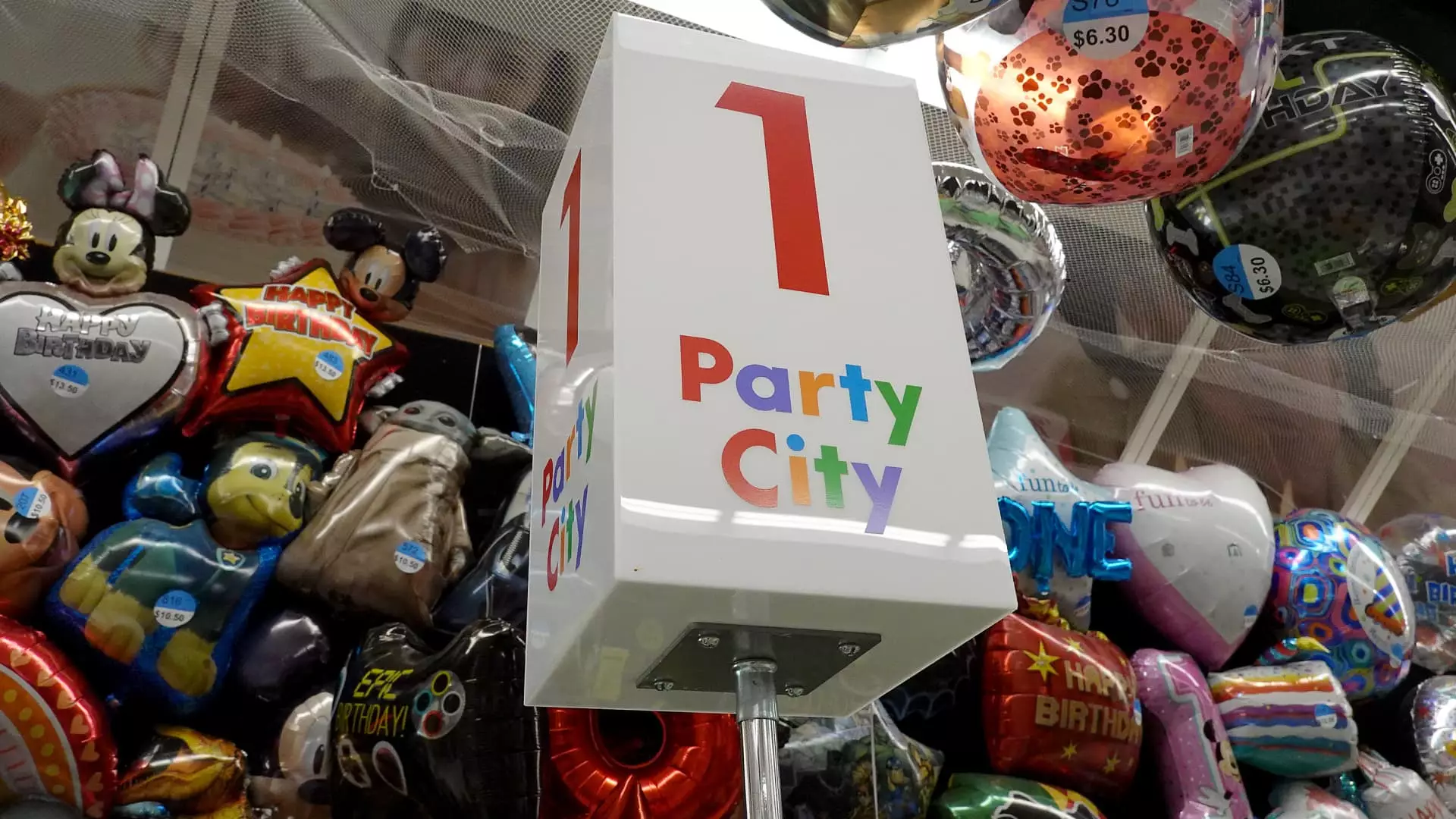In a shocking turn of events, Party City, the well-known party supply retail chain, has announced the closure of all its locations, effective immediately, along with substantial corporate layoffs. This decision, communicated by CEO Barry Litwin in a somber meeting, marks a significant moment in the company’s history and underscores the growing challenges facing brick-and-mortar retailers in today’s market. Litwin’s statement about the closure being “the most difficult message” he has ever had to deliver illustrates the emotional weight of this decision, both for him and the employees affected.
Party City’s closure does not come as a complete surprise. The company struggled financially, culminating in a bankruptcy filing less than two years prior due to overwhelming debts of $1.7 billion. The restructuring process, which allowed them to shed nearly $1 billion in liabilities and emerge as a privately-held entity in September 2023, seemed like a potential lifeline. However, lingering financial difficulties highlighted that even a strategic transformation couldn’t ensure sustainability. The difficulties faced by Party City are emblematic of a broader trend where traditional retailers grapple with financial health amidst competitive pressures and changing consumer behaviors.
Competition in the party supply arena has intensified in recent years. Rivals like Spirit Halloween are not only expanding their presence but are also diversifying their offerings with new concepts such as “Spirit Christmas” stores. This strategic shift reveals a growing adaptability within the industry that Party City did not seem to match. In an age where consumer preferences rapidly shift, being responsive and innovative is crucial; yet, Party City’s response seems to have fallen short, contributing to its demise.
Additionally, the rise of online retail giants has reshaped the landscape for retailers like Party City that rely heavily on physical store traffic. Although Party City adapted by bringing its products to Amazon in 2018, these efforts may not have been enough to retain a competitive edge in an increasingly digital marketplace.
The ramifications of Party City’s closure extend beyond just the loss of retail space. The layoffs affect countless employees who not only depended on Party City for their livelihoods but have invested their time and energy into the company’s vision. For many, it is not merely a job loss but the end of a chapter filled with celebrations, community engagements, and festive events—key elements that were at the heart of Party City’s identity.
As we move forward, the closure of Party City serves as a critical reminder of the challenges that traditional retailers face in an evolving market landscape. It emphasizes the necessity for adaptability in business strategy, innovation, and understanding consumer needs to secure a foothold in the retail industry. The loss of Party City is not just a lesson in corporate restructuring gone wrong; it is a broader commentary on how quickly circumstances can change in retail, underscoring the delicate balance businesses must maintain to stay relevant amidst fierce competition and shifting consumer behaviors.

